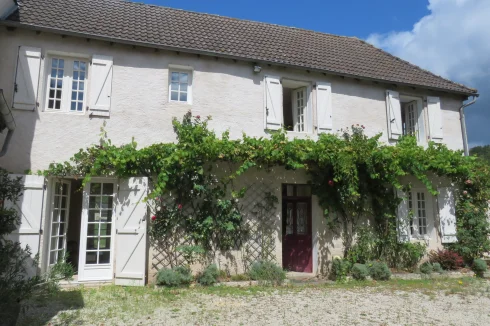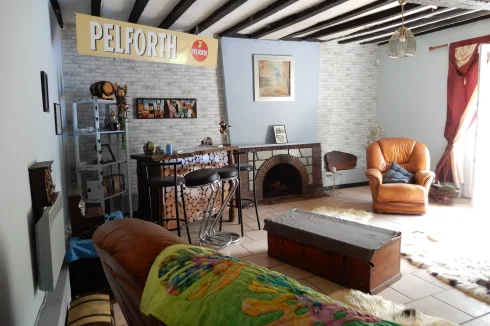Ryanair and Beauvais Airport Contract 'Illegal'
Tuesday 08 August 2017
Ryanair is in the soup again with the French national auditor, who claims their deal with Beauvais Airport is illegal.
The airport of Beauvais-Tillé is located around 75 km north of Paris, originally built in the 1930s for military use, for most of its life it has had a relatively uninspiring record.
Like most airports in France, it is owned on a joint basis by the local councils, in this case the department of l’Oise, the region of Hauts-de-France, and the town of Beauvais.
Running of the airport is delegated to a public-private sector partnership, comprising the Chambre de Commerce of Oise and the Transdev Group, itself a joint company comprising Véolia, a private sector minority partner, and the Caisse des Dépôts et Consignations, the investment arm of the French State.
Until 1996, the number of passengers who used the airport was under 100,000 a year, a figure that doubled the following year, rising to over 4 million last year, primarily as a result of Ryanair opening a service at the airport in 1997.
By 2014 Ryanair accounted for 83% of total passenger traffic and 82% of airline movements at the airport.
In examining the contract between the airport operator and Ryanair, the auditors found illegal commercial concessions ("accords illicites") had been granted to the airline.
These concessions meant that Ryanair paid little by way of landing charges and other services provided by the airport, and the company was also the beneficiary of performance based financial incentives.
According to the report, these concessions were contrary to the French civil aviation code and to European regulations, which both required that a market price structure for airport services be used. They considered that the accounting practices also failed to comply with legal requirements.
In order to meet the losses incurred in providing substantial assistance to Ryanair, the airport operators established a shuttle bus service out of Paris, maximising the fares on this service, which they used to balance the books. The shuttle service accounts for 50% of their total income.
The current price for a return shuttle fare booked on-line is €29, but €34 if purchased at the ticket office. A single on-line fare is charged at €15.90 (€17 at ticket office).
According to the authors, "Seuls les usagers de la ligne de bus entre Paris et Beauvais permettent de financer les services aéroportuaires, à la place des compagnies aériennes".
They claim that between 2008 and 2014, the airport owners were deprived of around €85m in receipts, of which around 91% was attributable to the concessions granted to Ryanair.
The report was submitted to the government earlier this year, and Ségolène Royal, the Minister of the Environment, responded that she did not consider the shuttle subsidy to be illegal, but that, in any event, the arrangements between the airport and Ryanair were the subject of an investigation by the European Commission.
There are a number of such investigations being carried out against Ryanair by the European Commission, which have been on-going for many years.
Ryanair and other low-cost airlines also regularly feature in reports prepared by the French national auditor, who consistently questions the public subsidies and other assistance offered to them.
One of the reasons why the French government and the European Commission have such a difficulty with this and other similar contracts is the employment that is generated by them. In the case of Beauvais airport the increased activity generates around 4,000 jobs, to say nothing of the wider economic benefits from tourism and business.
Thank you for showing an interest in our News section.
Our News section is no longer being published although our catalogue of articles remains in place.
If you found our News useful, please have a look at France Insider, our subscription based News service with in-depth analysis, or our authoritative Guides to France.
If you require advice and assistance with the purchase of French property and moving to France, then take a look at the France Insider Property Clinic.





